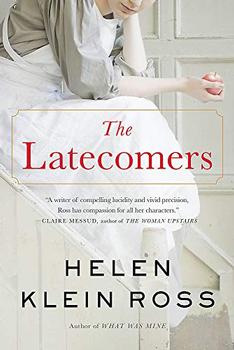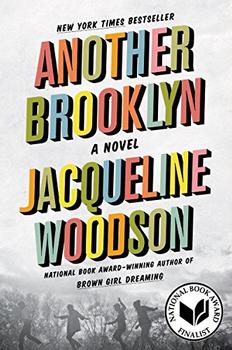Summary | Excerpt | Reading Guide | Reviews | Beyond the book | Read-Alikes | Genres & Themes | Author Bio

There seems to be two kinds of ice cream connoisseurs: One scarfs it down, reveling quickly in the cold, intense bursts of their favorite flavor. The second savors it, lick by lick, stretching out each second as long as they can. The Ice Cream Queen of Orchard Street accommodates both kinds, being a quick read but also long enough to savor.
Presented as a kind of memoir that real-life public figures don't have the courage to write - in which they reveal themselves in more detail than what is told in the media - the story explores the world of the fictional Lillian Dunkle, the Ice Cream Queen of the title. She is born Malka Treynovsky, in the small Russian village of Vishnev, from which she and her family flee to what her mother thought would be South Africa, but her father decided would be America, switching out the boat tickets at the last minute. Upon arriving in America, her mother abandons Malka after a horse pulling a penny-ices cart steps on her leg, crippling her. The Dinello family, who make the ices and later expand into gelato and ice cream, take her in. She eventually adopts their name, becoming Lillian Maria Dinello, and leaves her old self behind.
But this is not the end of her transformation. Not at all. In distinctive, delicious prose that makes you forget at times that there's an enormously talented new novelist crafting it, Lillian meets and then eventually marries the illiterate, Errol Flynn-like Albert Jacob Dunkle. Her new identity – Lillian Dunkle – is where the bulk of this magnificent novel lies. Lillian's marriage doesn't sit well with a few of the Dinellos, especially her brother Rocco, who suggests she drop out of college to work full-time for the family's burgeoning business. But none of that matters, because Lillian finds out, after her honeymoon in 1929, that the remaining Dinellos, after the death of their patriarch, have sold the business to the Cannolettis, their formerly bitter rivals.
The story becomes even richer when Lillian decides to get into the ice cream business herself. The first Dunkle's Ice Cream shop opens, twelve franchises follow, and Albert invents a quick-serve ice cream machine for the military that becomes of great service on the Pacific side of World War II. Lillian's empire rapidly expands, with her creativity for concocting new flavors in full force. It is consistently a sheer pleasure to read about her creative ideas and antics.
Interspersed with this fascinating ride through history is Lillian's present-day circumstance, which is placed at June 22, 1983, the day of reckoning for three counts of tax evasion brought against her, when a jury decides her fate in the matter. She also has the other matter of a court case against her for punching a child on live TV during her Sundae Funhouse show on NBC. The show has run for decades, and has been recently switched from live TV to taping, but not before this incident. We, of course, hear Lillian's side of that story, but even she admits to being drunk during the event in question.
It is in this kind of complicated moment – and there are many others like it in this blessedly large novel – that Susan Jane Gilman asks the reader to consider the questions what is the truth? and can you ever really know the truth anyway? We can only know so much about a public figure. We can only piece together what we think might be the truth of a matter. And, ultimately, the only person who knows the absolute truth, or what seems to be the absolute truth, is the public figure herself. This conundrum is what makes Lillian so interesting.
As Lillian's story smoothly ripples from the past to the present and back again, we also learn about the history of the ice cream cone, the debate over who invented it, an explanation of why air is important to ice cream, and the financial necessity of scooping a perfectly-formed 3.5 ounces of ice cream "and not a penny more." Gilman is a marvel at researching, and The Ice Cream Queen of Orchard Street luxuriates in long chapters that gift its readers with pure delight. The fun of history, when writing about it in the context of fiction, is the creativity afforded the author and, clearly, Gilman has plenty of it.
So don't wait! Dig in and ask for a big, heaping scoop of The Ice Cream Queen of Orchard Street. And make sure you have real ice cream handy. You're going to want it. Gilman makes sure of that.
Find out more fun facts about ice cream
![]() This review was originally published in The BookBrowse Review in June 2014, and has been updated for the
August 2015 edition.
Click here to go to this issue.
This review was originally published in The BookBrowse Review in June 2014, and has been updated for the
August 2015 edition.
Click here to go to this issue.

If you liked The Ice Cream Queen of Orchard Street, try these:

by Helen Klein Ross
Published 2019
A deeply moving family drama about a young Irish immigrant, an ancestral home in New England and a dark secret that lay hidden in its walls for five generations.

by Jacqueline Woodson
Published 2017
The acclaimed New York Times bestselling and National Book Award–winning author of Brown Girl Dreaming delivers her first adult novel in twenty years.
Your guide toexceptional books
BookBrowse seeks out and recommends the best in contemporary fiction and nonfiction—books that not only engage and entertain but also deepen our understanding of ourselves and the world around us.